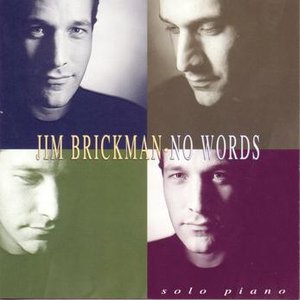Published on Sep 18, 2001
I have always found solo piano music to be some of the most
beautiful out there. At the same time, there’s always a twinge of
melancholy as well. We’re all familiar with what so many news
organizations do whenever someone of note dies; in all of their
tribute programming, the background music is often just a piano
playing.
And so, it seemed a bit weird for me to choose
No Words, the 1994 debut effort from Jim Brickman, to be the
first disc I listened to in its entirety following the events of
the past few days. While the music is absolutely beautiful, it did
strike more than a chord of sadness in me – and while I’m certain
that Brickman created this disc to reflect gentle images of his
life that all could relate to, this disc takes on a new air
altogether.
In a sense, this isn’t fair to Brickman.
No Words is merely meant to be a collection of 12 original
works that try and capture portraits in the gentle waves of the
grand piano. It is supposed to take you to scenes of waterfront
beauty, images of fields of wheat awaiting the harvest, and even
offer a poignant reminder of things which have been lost.
No Words can indeed do this, it is true – but even listening
to the disc prior to September 11, it almost felt like there was an
underlying sense of sadness to some of the music. Tracks like “Open
Doors” and “I Said You Said” have the power to move a listener to
tears if the mood is just right. That being said, No Words can also
have the opposite effect, and serve as a soundtrack to romance, as
songs like “Rocket To The Moon” and “Shaker Lakes” prove.
Brickman’s style of playing isn’t one of musical mastery of the
piano, making it do things that even Beethoven never dreamed about.
No, Brickman’s style of playing is more mid-line (though I don’t
dare call it simplistic, having served 10 years in piano lesson
hell), emphasizing more of the emotion of the notes rather than
technical precision. By doing so, Brickman becomes the New Age
composer for the Everyman, and creates a disc that you could
literally put on the stereo for any occasion, in any personal
mood.
